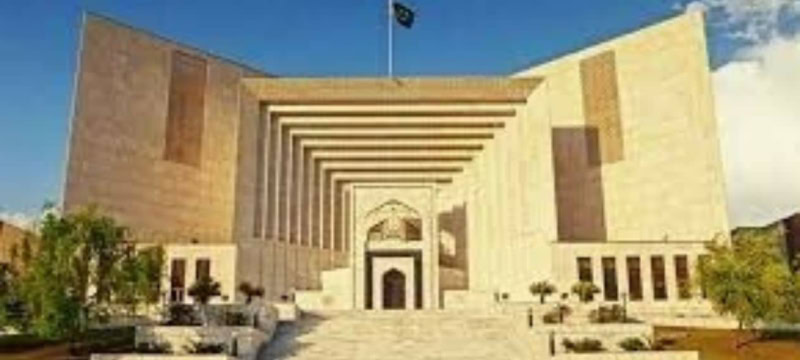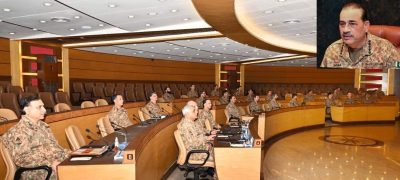The Supreme Court has granted the federal government’s appeal to remove controversial sections from the Mubarak Sani case verdict.
On Thursday, a three-judge bench led by Chief Justice Qazi Faez Isa, alongside Justices Amin-Ud-Din Khan and Naeem Akhtar Afghan, heard the federal government’s plea along with the Punjab government’s request for amendments to the court’s February 6 ruling.
Read more: ECP Plans to Contest Supreme Court Ruling on Reserved Seats
The apex court had previously overturned Sani’s conviction, ruling that the offense he was charged with was not criminalized until 2021, leading to his immediate release.
Following this verdict, the Punjab government filed a review petition under Article 188 of the Constitution. On July 24, the Supreme Court confirmed its alignment with previous decisions of the Federal Shariat Court and upheld Sani’s bail, prompting backlash from religious groups and a debate in the National Assembly’s Standing Committee on Law and Justice. Both government and opposition members agreed that the federal government should appeal the decision.
In addition to the Punjab government’s petition to omit specific parts of the revised July 24 verdict, the federal government submitted a miscellaneous plea on August 17, following directives from Prime Minister Shehbaz Sharif.
The Punjab government argued that influential clerics and parliament members had urged the federal government to challenge certain parts of the verdict, claiming they were erroneous and inconsistent with prior high court rulings.
Religious figures, including Maulana Fazlur Rehman of Jamiat Ulema-e-Islam Fazl and Mufti Muhammad Taqi Usmani of Jamia Darul Uloom Karachi, supported the federal government’s appeal and attended the hearing.
In its brief ruling, the Supreme Court declared that the removed sections of the verdict cannot be used as legal precedent in future cases.
The Hearing
At the start of the hearing, Attorney General Usman Awan informed the court that following the July 24 verdict, both parliament and certain religious leaders had urged the federal government to revisit the Supreme Court on the issue.
Although acknowledging that a “second review” of the original verdict was not possible, the AGP stated that the government had approached the court in line with the Code of Civil Procedure.
Chief Justice Isa remarked, “If we make a mistake, it should be corrected,” and apologized to Mufti Usmani, who joined the hearing via video link, for not being able to review all the documents submitted to the court.
He asked Usmani to point out any “mistakes” and “objections” in the verdict. CJ Isa emphasized that, as an Islamic state, judicial decisions often reference the Quran and Hadith, and acknowledged his own fallibility.
The Supreme Court, in accepting the provincial government’s plea, decided to seek input from Usmani, Fazl, and other religious scholars.
Mufti Usmani requested the removal of paragraphs 7 and 42 from the July 24 revised verdict and amendments to the sections where the court had accepted the removal of charges against the accused.
Paragraph 42, which detailed constitutional and legal provisions, stated that Ahmadis, declared non-Muslims by the Constitution, have the right to practice and preach their religion privately, but must not publicly present themselves as Muslims.
Usmani argued that the term “tableegh” (preach) in paragraph 42 implied “unconditional permission” for Sani. Fazl, supporting Usmani’s request, called for a revision of the entire Supreme Court verdict and suggested that while Sani’s bail might be justified, all blasphemy charges should remain.
Fazl advocated for continuing Sani’s trial as per the Council of Islamic Ideology’s recommendations.
After considering the opinions of various religious scholars, the court decided to remove certain paragraphs, agreeing with the Council of Islamic Ideology’s recommendations. The removed paragraphs will not serve as legal precedent in future cases, and the trial court was instructed to review the charges against Sani according to the law.
Following the hearing, Fazl praised the Supreme Court’s decision and Chief Justice Isa’s “positive attitude” in handling the case. He announced that August 23 would be observed as ‘thanksgiving day’ to celebrate the court’s favorable judgment.









